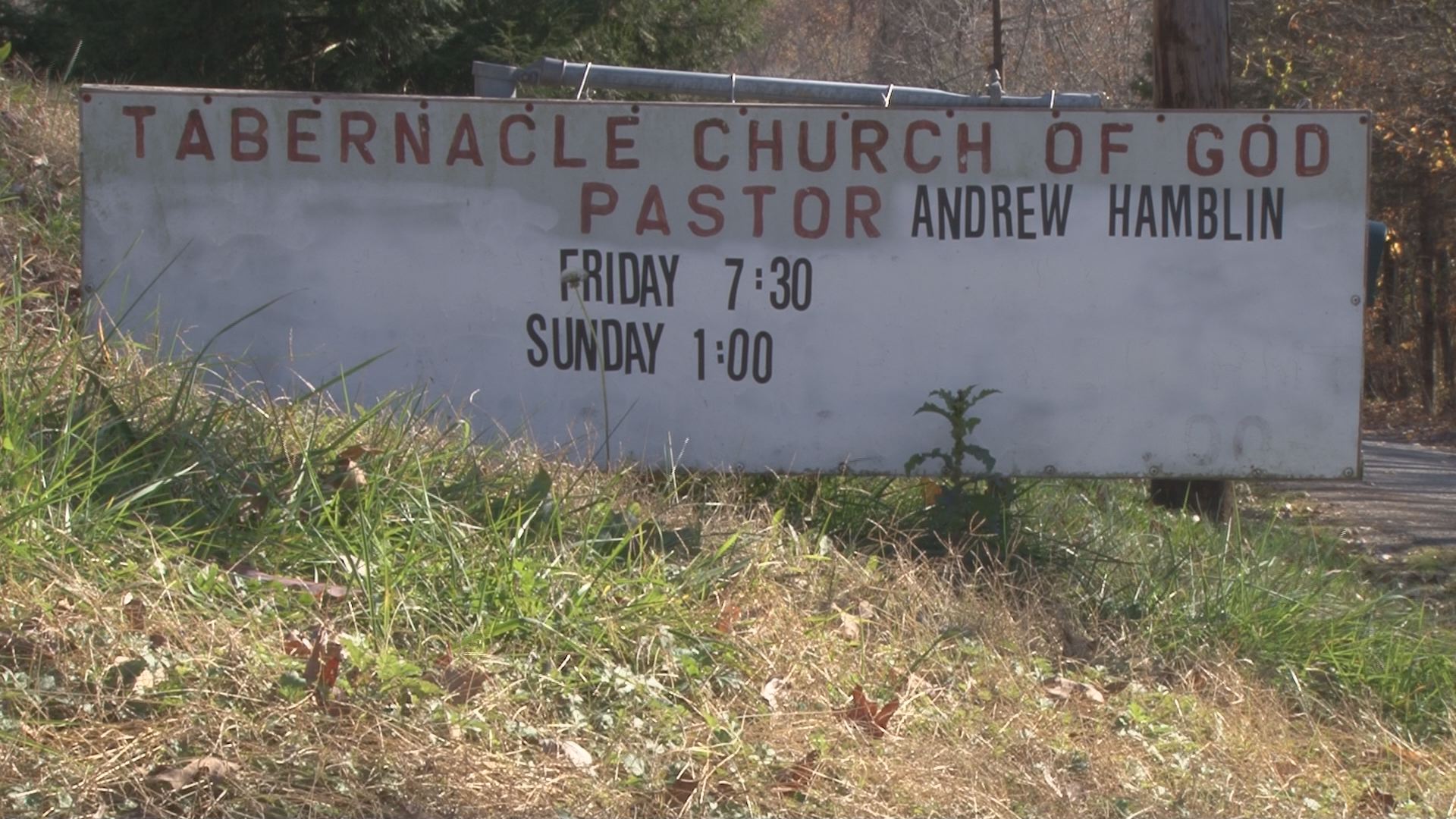(WBIR) A LaFollette pastor headed to court next week for having dozens of poisonous snakes at his church said the laws he allegedly violated in Tennessee infringe on his freedom of religion.
Thursday Andrew Hamblin, at Tabernacle Church of God, was cited for possession of class 1 wildlife, a class c misdemeanor. He said he knew serpent handling was illegal, but said the law violates his First Amendment rights.
10News talked to lawyers, professors, and TWRA officials, who said he's fighting a losing battle.
"The court would hold, most likely hold, I should say, that under the First Amendment, he would have no claim," said Akram Faizer, assistant professor of law at Lincoln Memorial University.
Faizer and legal experts said the law clearly shows Hamblin broke several laws, including T.C.A. 39-17-101, which says "It is an offense for a person to display, exhibit, handle, or use a poisonous or dangerous snake or reptile in a manner that endangers the life or health of any person."
Hamblin said the law prohibits him from practicing his religion. At his church, he and members who wish to, hold poisonous snakes while praying and singing, which they claim shows the power of God.
"I believe in the power of God and that it'll let you heal to seek and it'll move and it'll cast out devils. It'll move in tongues, it'll move and take up serpents," said Hamblin. "Here I am I'm getting snakes took, I'm facing jail time, I'm facing being taken away from my wife, my children, I'm facing being pulled out of my church just simply because I went out in the woods and caught a rattlesnake and I brought it to a service because I believe the bible said they shall take up serpents."
But, Inside Tennessee panelist Dennis Francis said nowhere in the Tennessee law does it state that there is a religious exception to the rule.
"It appears the only exception is if he applied for a license to possess reptiles," said Francis.
According to TWRA officials, only institutions can apply for such license, including zoos and universities, not individuals.
As for the law and whether it could be ruled as violating Hamblin's First Amendment rights, experts agreed that would be unlikely to happen, since it is a law of general applicability.
"In other words, laws that are there for the entire community don't implicate the First Amendment even though they may have an effect on some people's ability to practice their religion," said Faizer. "For a law like this, in respect of snakes, the goal is not to suppress anyone's religion, the goal is to prevent a public nuisance."
The public nuisance in this case is the danger poisonous snakes carry.
"The court would hold, most likely hold, I should say, that under the First Amendment, he would have no claim," said Faizer.
The law was challenged nearly 40 years ago.
"There were very similar cases to this. In 1975, in case called Swan v. Pact, said that snake handlers who claim religious freedom to handle and use poisonous snakes have no such freedom," explained Faizer.
Attacks on laws, using religion and First Amendment rights, are nothing new.
"Mormons brought suit in a case called Reynolds, back in 1878, that went to the Supreme Court saying that they have a First Amendment freedom of religious expression right to engage in polygamy, and the court said no to that," said Faizer.
Francis said similarly, Native American's in Oregon tried to use their religion to legalize their use of peyote. But, challenging the law is typically met with great difficulty.
TWRA officials said about eight years ago, a minister in Cocke County was charged after state wildlife officers found snakes in his shed.
Possession of class I wildlife is a class c misdemeanor, which can carry a punishment no greater than 30 days in jail or a fine not exceeding $50.


